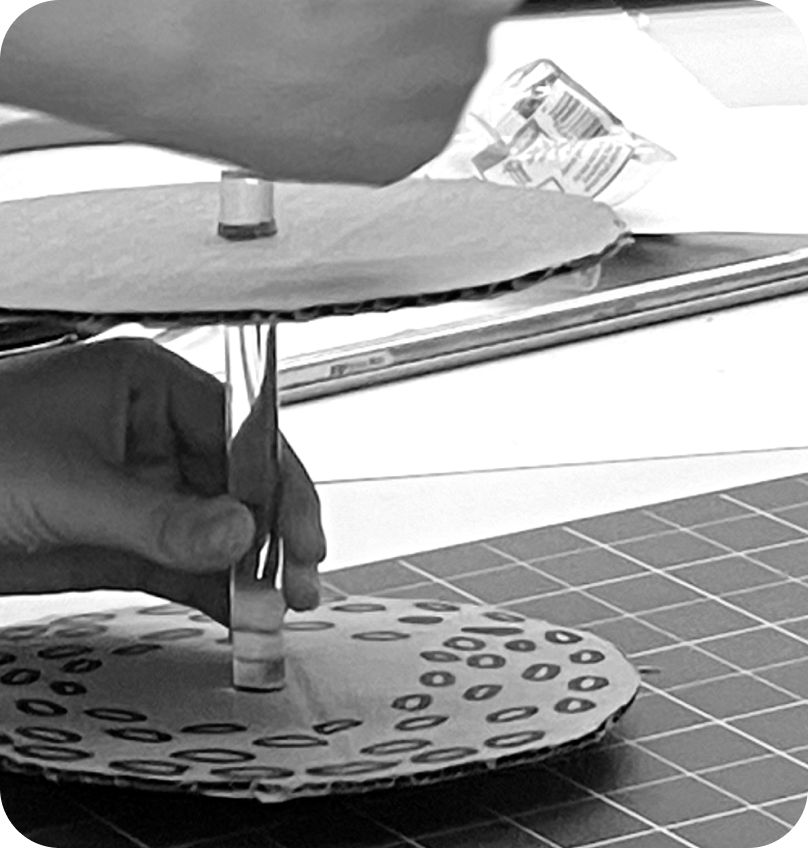My Contribution
As project lead, I unified the expertise of designers from different backgrounds and oversaw the entire design process
I led designers from psychology, engineering, informatics, and industrial design to
have impactful dialogues surrounding ADHD and craft meaningful design solutions based off of our research insights.
Ideation outcome
Our team moved forward with a hybrid approach that
used a modular, physical timer to provide uninterrupted study
sessions and a mobile application that aligns the student’s
study strategy with their academic success
User Testing Results
During mid fidelity testing students with ADHD said they enjoyed the tactility of the product and the playful, guided study sessions. However, there were also design adjustments made after feedback




















-2.png)









